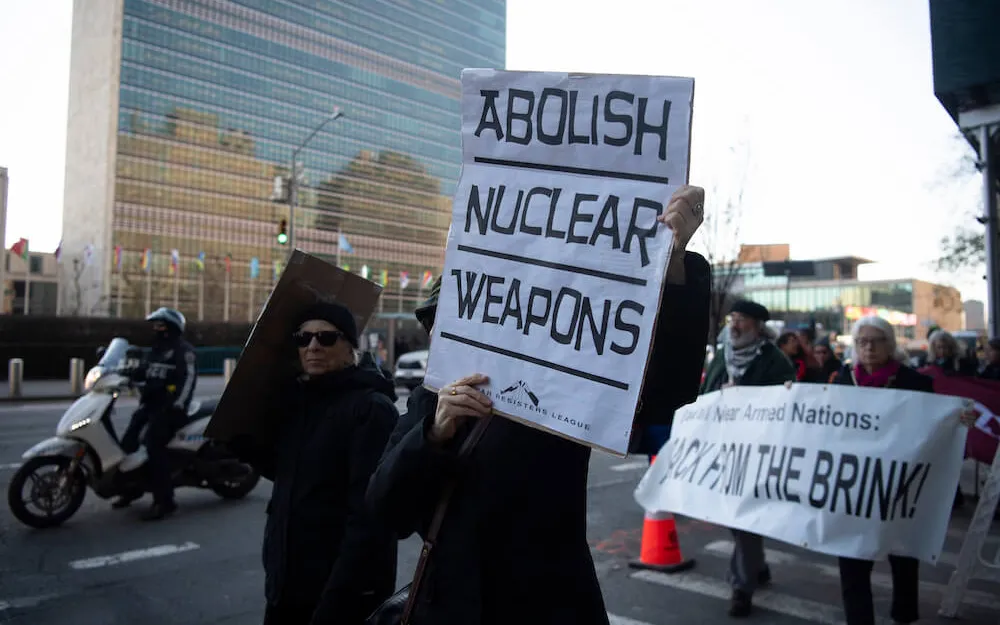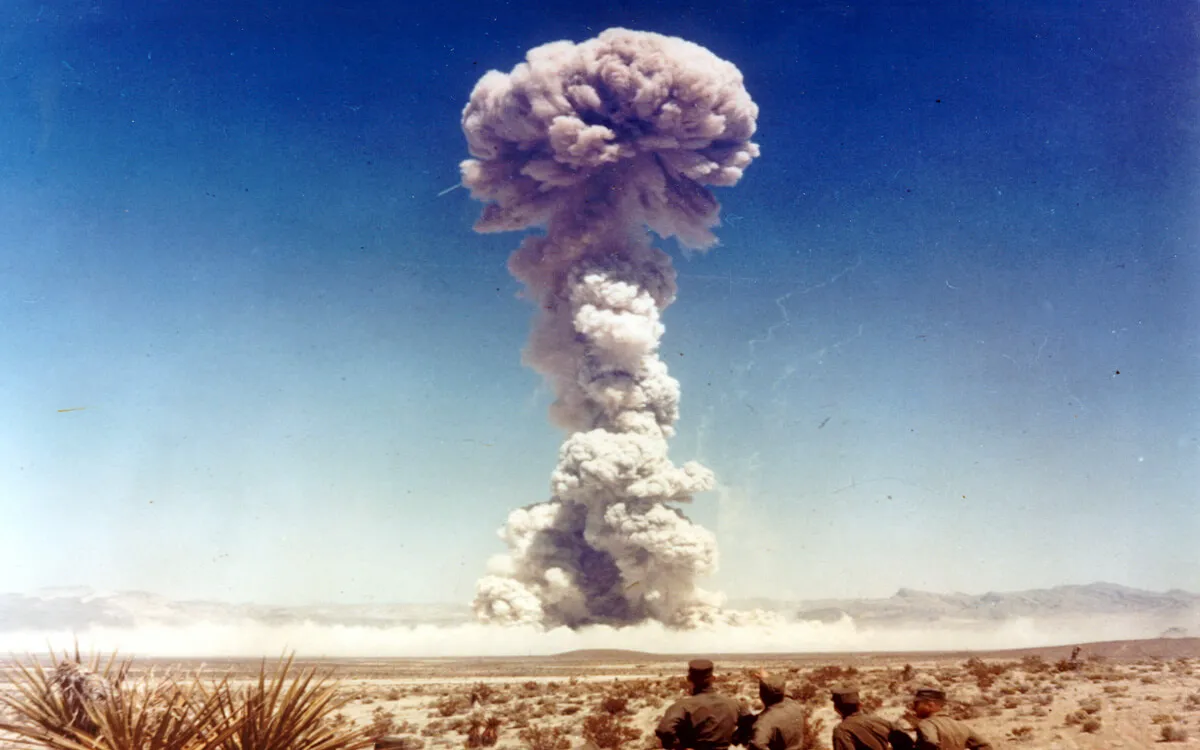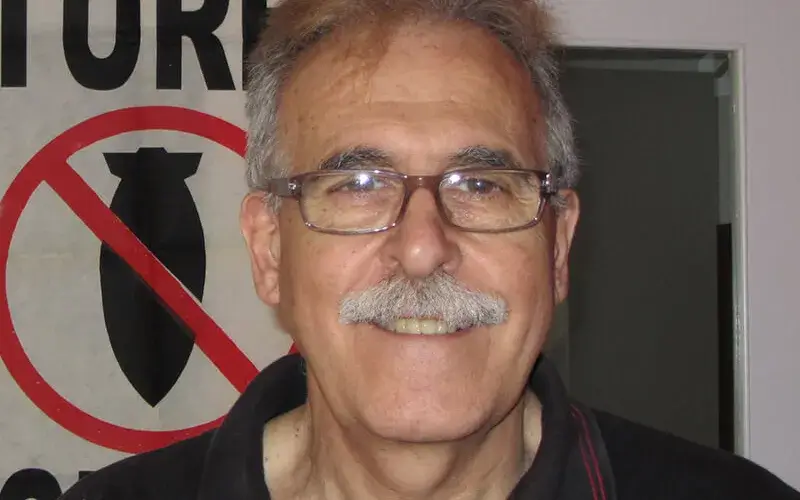A hundred municipalities, eighty-one of them Catalan, approve motions supporting the Treaty on the Prohibition of Nuclear Weapons and call on the Spanish government to sign it.
The town of Teià, located in the Maresme region, has become the hundredth municipality in Spain to approve an institutional motion in support of the Treaty on the Prohibition of Nuclear Weapons (TPNW), the first legally binding international agreement, adopted by the United Nations in 2017 and in force since 2021, which completely bans nuclear weapons with the ultimate goal of their total elimination.
The support from the Maresme municipality for the TPNW, which includes a call for the Spanish government to sign and ratify the agreement, has brought the total number of municipalities in Spain supporting the treaty to one hundred. This milestone places Spain alongside Belgium and Germany, the only European NATO countries to have reached this point so far.
Similarly, this hundredfold support once again demonstrates the leadership that cities, the main victims of nuclear weapons, are showing in the demand for a world free of these weapons of mass destruction. As Carme Suñé, vice-president of FundiPau and member of the Alianza por el Desarme Nuclear, expressed in a recently published article on Xarxanet Non Profit: “Cities are the primary targets of nuclear weapons and therefore have the responsibility to denounce the inclusion of these weapons in national security policies.”
Teià is the latest to join a long list of cities in Spain such as Barcelona, Seville, Zaragoza, A Coruña, Cadiz, Burgos, Girona, and Santiago de Compostela, among others. All of these cities –with Madrid being a notable absence– have approved motions supporting the TPNW and have called on the Spanish government to sign and ratify it as soon as possible. This would signify a change in the Spanish government's position, which has so far been reluctant to approve the treaty, despite increasing public pressure to do so.
A global campaign led by cities
The approval of motions in favor of the TPNW has materialized within the framework of the 'Cities Appeal - Cities of Peace' campaign, a global initiative led by the International Campaign to Abolish Nuclear Weapons (ICAN) that promotes initiatives for cities to take actions opposing nuclear weapons and to raise public awareness about the need to eliminate this threat once and for all.
"The milestone represented by the support of these hundred cities for the TPNW puts Spain on par with Belgium and Germany, countries that have been at the forefront of this campaign, and indicates that a significant portion of the Spanish population opposes the existence of this type of weaponry, given that among the signatory cities there are provincial capitals and very important municipalities," explains Maribel Hernández, coordinator of the Alianza por el Desarme Nuclear, an ICAN member organization, in an interview with Xarxanet.
Moreover, the success of the campaign sends an unequivocal message from the citizens to the Spanish government to change its stance on this issue. “Today, it is utterly incomprehensible that Spain is still not one of the signatories of the TPNW,” Hernández asserts.
So far, however, the Spanish government has not budged an inch from NATO's position, which maintains that nuclear weapons are a deterrent and that the Treaty on the Non-Proliferation of Nuclear Weapons is sufficient.
“We know it will not be easy to change their stance, but this milestone will be an important element that we will use to continue pressing the Spanish government to act in line with the citizens' demands,” assures Hernández, who recalls that various surveys estimate that 80% of the population supports the TPNW.
The most real nuclear threat in decades
Beyond the public's rejection of nuclear weapons, the current dangerous global context makes it more necessary than ever to establish mechanisms to prevent a nuclear disaster. In this vein, Carme Suñé warns that “the invasion of Ukraine by Russia, the threat by this country to use nuclear weapons, the high number of these weapons, the militarization of discourse, and the bellicose escalation on all sides make the possibility of nuclear weapons being used as plausible as during the Cold War.”
Maribel Hernández also believes that “we are at the greatest nuclear threat moment since World War II, which is why support for the TPNW is more important than ever.” This is especially true at a time when nuclear powers are trying to reaffirm the validity of nuclear deterrence as a foreign policy strategy. “This puts us all on the brink of the abyss because today we have countries with nuclear weapons that are in the midst of conflict – like Russia – and therefore the risk of a nuclear war breaking out is real,” she adds.
All of this makes evident the inconsistency of having these weapons under the discourse that we have them to deter their use. On the contrary, the only real certainty is that the mere existence of these weapons makes their use possible.
Besides the enormous economic expenditure represented by the manufacture, maintenance, and modernization of nuclear arsenals – resources that could be dedicated to more urgent issues such as addressing the climate crisis, investing in global justice, or promoting the peaceful transformation of conflicts and disarmament, to name a few examples.
All in all, there is no doubt that the best mechanism currently available to curb the proliferation of nuclear weapons is the TPNW. “The signing of the treaty is the only thing that truly paves the way to the end of nuclear weapons,” Hernández concludes. Catalonia, with eighty-one of the hundred municipalities in Spain that have approved motions in favor of the agreement, is a leader in this regard.









Add new comment